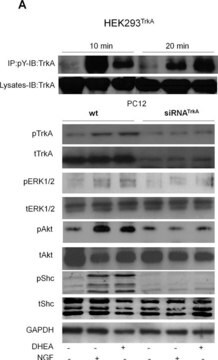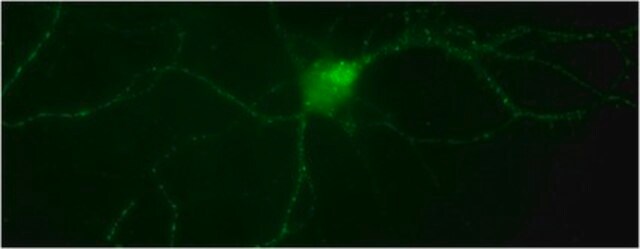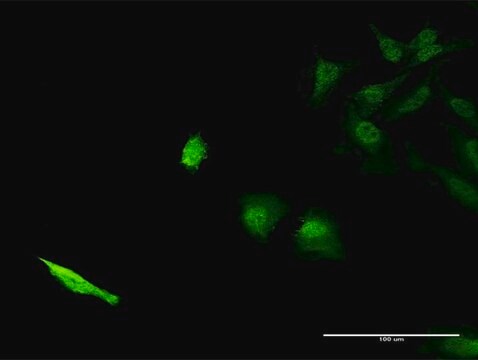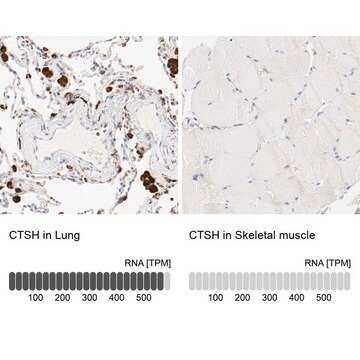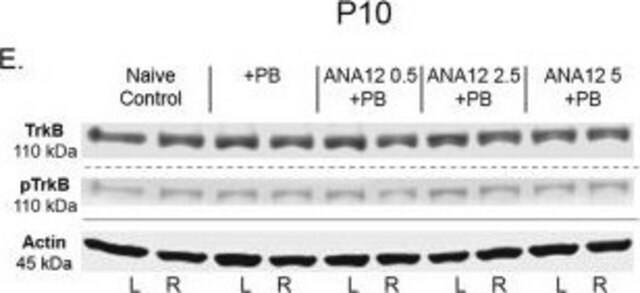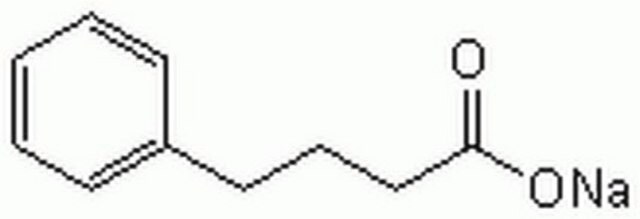T9691
Anti-phospho-TrkA (pTyr490) antibody produced in rabbit
affinity isolated antibody, buffered aqueous glycerol solution
About This Item
Recommended Products
biological source
rabbit
Quality Level
conjugate
unconjugated
antibody form
affinity isolated antibody
antibody product type
primary antibodies
clone
polyclonal
form
buffered aqueous glycerol solution
mol wt
antigen 140 kDa
species reactivity
rat, mouse, human
technique(s)
immunocytochemistry: 1:100 using cultured cells
immunohistochemistry (frozen sections): 1:10
immunoprecipitation (IP): 1:250
western blot: 1:1,000 using NGF-treated PC12 cells
UniProt accession no.
shipped in
wet ice
storage temp.
−20°C
target post-translational modification
phosphorylation (pTyr490)
Gene Information
human ... NTRK1(4914)
mouse ... Ntrk1(18211)
rat ... Ntrk1(59109)
Related Categories
General description
Immunogen
Application
Physical form
Disclaimer
Not finding the right product?
Try our Product Selector Tool.
Storage Class
10 - Combustible liquids
wgk_germany
WGK 2
flash_point_f
Not applicable
flash_point_c
Not applicable
Choose from one of the most recent versions:
Already Own This Product?
Find documentation for the products that you have recently purchased in the Document Library.
Our team of scientists has experience in all areas of research including Life Science, Material Science, Chemical Synthesis, Chromatography, Analytical and many others.
Contact Technical Service
